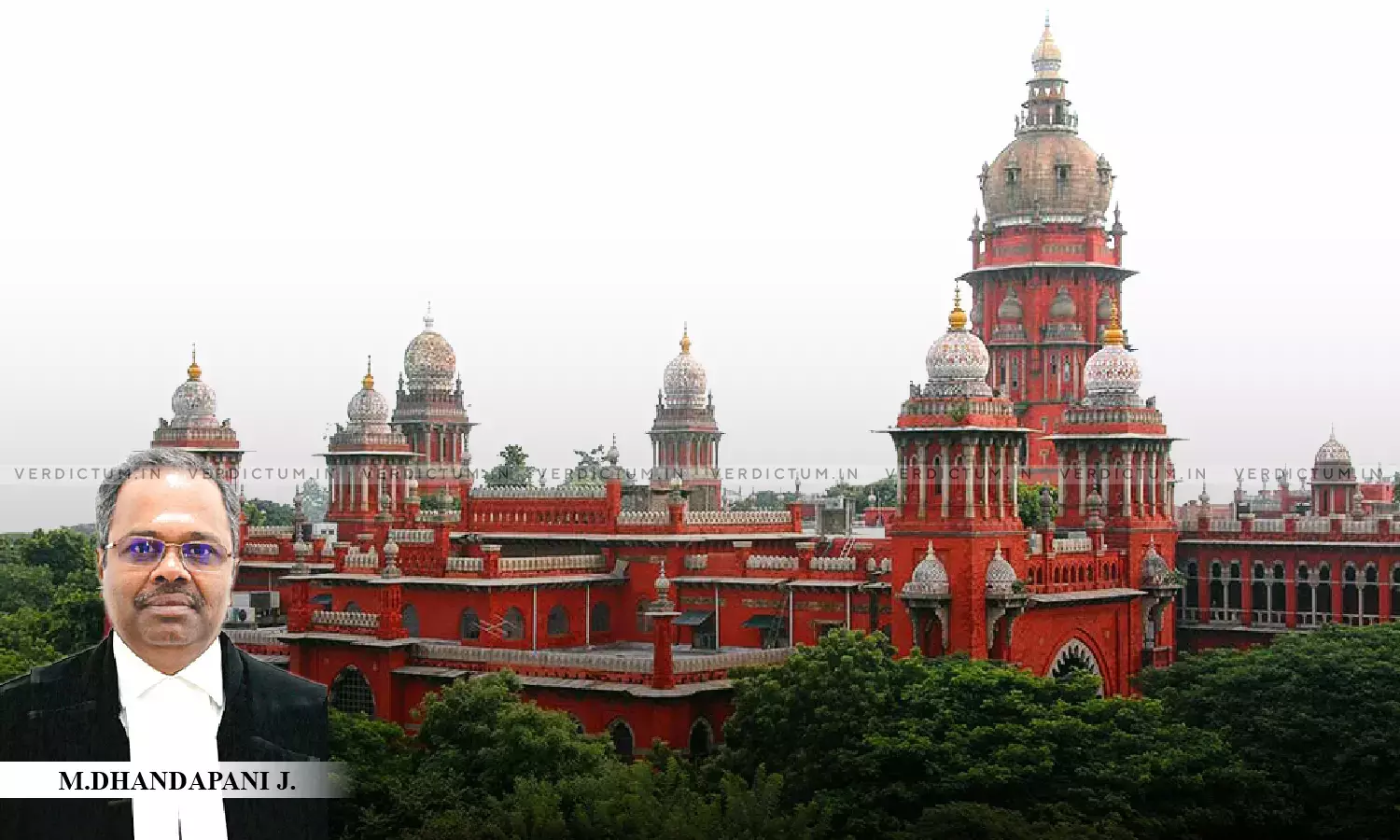Grandparents’ Execution Of Adoption Deed Does Not Invalidate Adoption If Biological Mother Has Consented: Madras High Court
The High Court held that when an adoption is made under the Hindu Adoptions and Maintenance Act, 1956, and the biological mother has consented, the mere execution of the deed by the grandparents cannot render the adoption invalid.

Justice M. Dhandapani, Madras High Court
The Madras High Court has held that an adoption executed under the Hindu Adoptions and Maintenance Act, 1956, remains legally valid even if the adoption deed is signed by the child’s grandparents, so long as the biological mother has consented to the adoption.
The Court was hearing a petition filed by a couple seeking a writ to quash an order passed by the Registrar of Births and Deaths, Puducherry, who had rejected their request to record themselves as the parents of their adopted daughter in her birth certificate.
A Bench comprising Justice M. Dhandapani, while deciding the matter, unequivocally held that “the mere fact that the grandparents of the child had executed the adoption deed alone cannot make the adoption deed invalid so long as the adoption deed was executed with the concurrence of the mother of the child, who is none other than the daughter of the grandparents of the child.”
The Court further clarified that neither the Juvenile Justice Act nor the Adoption Regulations, 2022, can be used to invalidate such an adoption or to deny statutory consequences flowing from it, including the right of the adoptive parents to have their names entered in the birth certificate of the child.
Advocate D. Ravichander represented the petitioner, while V. Vasanthkumar, AGP (P), appeared on behalf of the respondents.
Background
The petitioner and his wife, married in 2006, were not blessed with a child and decided to adopt. They adopted a baby girl born on 26 April 2022. The child’s biological mother, aged 18, consented to give the child up for adoption due to financial hardship, and the adoption was ceremonially performed under Hindu rites, including Datta Homam, followed by execution and registration of a valid adoption deed on 7 September 2022 before the Sub Registrar, Puducherry.
Subsequently, the adoptive parents requested a corrected birth certificate incorporating the child’s new name and the names of the adoptive parents. The Registrar rejected the request, stating that only the District Magistrate could certify adoption as per the Adoption Regulations, 2022, and that the civil court decree obtained in favour of the petitioner was insufficient.
The petitioner challenged this rejection, asserting that the adoption was governed purely by the HAM Act and that Section 56(3) of the Juvenile Justice Act expressly excluded its applicability.
Court’s Observation
The Madras High Court undertook a detailed statutory analysis of the HAM Act, Juvenile Justice Act, and the Adoption Regulations, and held that HAM Act is a complete code governing adoptions between Hindus, and that the Juvenile Justice Act applies only to children who are “orphaned, abandoned, surrendered, in conflict with law”, or children otherwise falling under Section 2 of the Juvenile Justice Act.
The High Court emphasised that Regulation 40 and 69 of the Adoption Regulations, 2022 cannot override Section 56(3) of the Juvenile Justice Act, which, the Bench noted, states that “Nothing in this Act shall apply to the adoption of children made under the provisions of the Hindu Adoptions and Maintenance Act, 1956.”
The Court also rejected the respondents’ argument that the adoption was invalid because the deed was executed by the grandparents, holding that undisputed evidence showed that the biological mother had consented. It further noted that the civil court had already adjudicated the validity of the adoption and decreed accordingly. Such a decree could not be nullified by an administrative authority.
On the broader principle, the Court observed that adoption laws are benevolent and aimed at protecting children, not obstructing them. The Court criticised the authorities for creating unnecessary obstacles, stating that such pieces of legislation “are aimed at protecting the interests of the adopted child and not to sabotage its interests… this is one such classic case of the authorities trying to block the interests of the child.”
Accordingly, it held that insisting on an order from the District Magistrate was legally unfounded.
Conclusion
Holding the administrative refusal to be contrary to law, the Court set aside the impugned order of the Registrar and directed the issuance of a corrected birth certificate incorporating the adoptive parents’ names within four weeks. The writ petition was accordingly allowed.
Cause Title: A. Kannan v. Union Territory of Puducherry & Others
Appearances
Petitioner: Advocate D. Ravichander
Respondents: V. Vasanthkumar, Additional Government Pleader (P)


